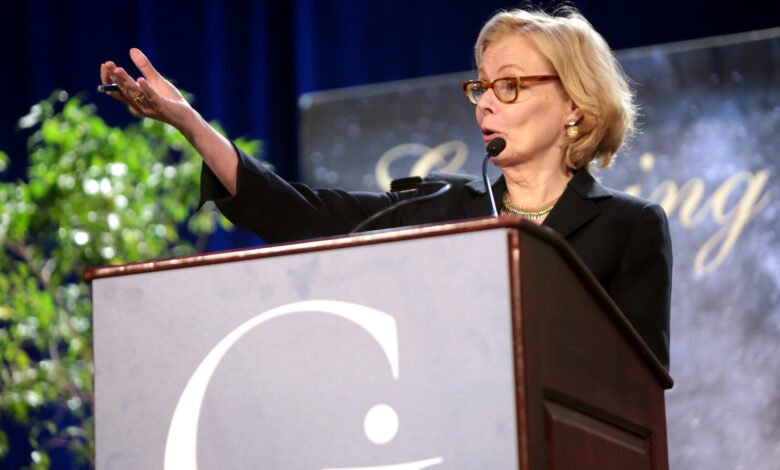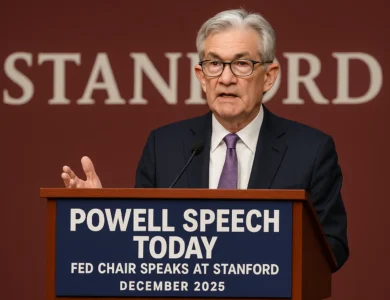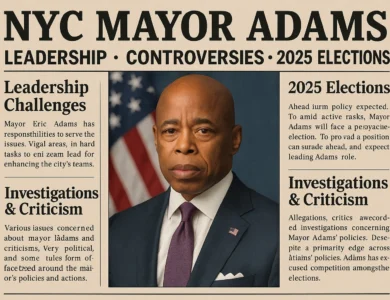
Peggy Noonan stands as one of America’s most respected political columnists, bringing decades of insight, eloquence, and unflinching analysis to the pages of The Wall Street Journal. As a former presidential speechwriter for Ronald Reagan and George H.W. Bush, Noonan transitioned seamlessly into journalism, where her thoughtful political commentary has influenced readers, policymakers, and fellow journalists alike.
Throughout her illustrious career, Peggy Noonan’s columns have tackled everything from presidential elections and national crises to cultural shifts and the American character. Her writing style combines literary grace with sharp political analysis, making complex issues accessible while never dumbing them down. She possesses a rare ability to capture the mood of the nation, often articulating what millions feel but struggle to express.
This comprehensive exploration examines Peggy Noonan’s best columns—those pieces that not only defined moments in American history but continue to resonate with readers today. These works showcase her unique perspective as both an insider who understands the mechanics of political power and an observer who maintains critical distance. Whether you’re a longtime follower of her work or discovering her Wall Street Journal columns for the first time, this journey through her most powerful writings reveals why she remains essential reading for anyone seeking to understand American politics and culture.
The Evolution of a Political Writer: Understanding Peggy Noonan’s Impact
Before diving into specific columns, understanding Peggy Noonan’s background provides crucial context. Born in Brooklyn, New York, she rose from middle-class roots to become one of the most influential voices in American political journalism. Her tenure in the Reagan White House during the 1980s gave her unprecedented access to the machinery of presidential power, an experience that would inform every column she later wrote.
What distinguishes Noonan from other conservative columnists is her willingness to critique her own ideological allies when principles demand it. She writes not as a partisan warrior but as someone genuinely concerned with the health of American democracy and civic culture. This intellectual honesty has earned her readers across the political spectrum, even when they disagree with her conclusions.
Her op-ed pieces often focus on themes of leadership, character, and the importance of eloquence in public life—values she witnessed firsthand during the Reagan years. Yet she never indulges in nostalgia without purpose, using historical perspective to illuminate contemporary challenges.
“A Separate Peace”: Capturing the Elite-Working Class Divide
One of Peggy Noonan’s most powerful columns explored the growing chasm between America’s protected elite class and those vulnerable to economic and social disruption. Published years before populist movements shook both major parties, this piece demonstrated her prescient understanding of the forces reshaping American politics.
In this political analysis, Noonan described how those insulated from globalization’s consequences—living in safe neighborhoods, sending children to good schools, and enjoying economic security—had made a “separate peace” with the status quo. Meanwhile, working-class Americans bore the costs of policies the elite championed without experiencing their downside risks.
The column’s power lay in how it explained political developments that baffled other commentators. Noonan articulated why traditional party loyalties were fracturing and why voters increasingly distrusted institutions. Her observation that the protected class showed little solidarity with vulnerable Americans predicted electoral upheavals that would follow.
This work exemplifies Peggy Noonan’s political commentary at its finest—identifying emerging trends before they become obvious, explaining them with clarity and fairness, and doing so in prose that elevates rather than inflames. Readers returned to this column repeatedly as political surprises unfolded, finding that she had mapped the terrain years earlier.
“Welcome Back, Duke”: On American Heroism After September 11th
Following the September 11th terrorist attacks, Peggy Noonan penned columns that captured both the horror and the heroism of that defining moment. In “Welcome Back, Duke,” she reflected on how the attacks revealed timeless American virtues that many thought had disappeared in a cynical, postmodern age.
The Wall Street Journal column took its title from John Wayne, whose straightforward heroism seemed antiquated to cultural critics but suddenly relevant again. Noonan observed how firefighters, police officers, and ordinary citizens responded with selfless courage, embodying values that sophisticated culture had dismissed as naive.
Her writing during this period provided emotional resonance alongside political insight. She understood that Americans needed not just information but meaning—a framework for understanding what had happened and what it revealed about national character. Where others offered only rage or despair, Noonan found genuine heroism and renewed purpose.
This column series demonstrated her ability to write about catastrophe without exploiting it, to be patriotic without being jingoistic, and to find hope without minimizing tragedy. Readers turned to her work seeking not just analysis but wisdom, and she delivered both.
“Patriots, Then and Now”: Comparing Revolutionary Courage to Modern Leadership
In a column examining American political leadership, Noonan drew powerful parallels between the Founding Fathers and contemporary figures, asking whether modern leaders possessed comparable courage and principle. This piece showcased her skill at using historical perspective to illuminate current deficiencies.
The op-ed examined how the Revolutionary generation risked everything—their lives, fortunes, and sacred honor—for principles they believed transcended personal interest. Noonan contrasted this with contemporary politicians who seemed to calculate every position based on polling and personal advantage rather than conviction.
Her critique wasn’t simply nostalgic but challenged readers to demand more from their leaders. She argued that Americans deserve representatives willing to sacrifice politically for what’s right, not simply career-advancing politicians who happen to hold office. The column became a touchstone for discussions about political courage and principle.
This work represents Peggy Noonan’s conservative commentary at its most constructive—not defending the status quo but calling both parties to higher standards. By anchoring her argument in American history, she made a case that transcended ideology, appealing to shared values about leadership and sacrifice.
“The Loneliest President Since Nixon”: Understanding Political Isolation
Peggy Noonan’s columns on presidents have always combined psychological insight with political analysis. In this powerful piece, she examined presidential isolation—how the office’s pressures, combined with personality factors, could leave even the world’s most powerful person profoundly alone.
The column explored how modern presidents increasingly surround themselves with loyalists rather than truth-tellers, creating echo chambers that distort reality. Noonan drew on her White House experience to explain how presidential isolation develops gradually, as uncomfortable voices get excluded and remaining advisors learn to tell leaders what they want to hear.
Her political writing in this piece showed empathy for the human being holding the office while maintaining critical distance from their decisions. She explained how isolation produces poor judgment without excusing the consequences. This balance—understanding the pressures of leadership while holding leaders accountable—exemplifies her approach.
The column resonated because it explained presidential behavior that otherwise seemed inexplicable. Readers gained insight into why capable people make disastrous decisions once in office, understanding the systemic and psychological factors that impair judgment at the highest levels.
“Too Much Tumbrel Talk”: Warning Against Political Extremism
Among Peggy Noonan’s best political columns, this piece warned against increasingly violent rhetoric and the dangerous normalization of extremist language in American politics. The title referenced the tumbrels that carried aristocrats to the guillotine during the French Revolution’s Reign of Terror.
Noonan observed that Americans across the political spectrum were using language suggesting their opponents weren’t just wrong but enemies to be destroyed. This rhetorical escalation, she argued, corroded the possibility of democratic governance and peaceful coexistence. The political commentary called for restoring norms of civil discourse and recognizing that political opponents remain fellow citizens.
The column’s power came from its even-handedness. Rather than pointing fingers at one side, Noonan criticized extremism wherever it appeared, making her warnings more credible. She understood that once rhetorical violence becomes normalized, actual violence follows more easily—a pattern history demonstrates repeatedly.
This work showed Peggy Noonan’s journalism at its most prophetic and necessary. In an era where outrage generates clicks and extreme rhetoric drives fundraising, she reminded readers why moderation and civility matter not as weakness but as preconditions for democratic survival.
The Noonan Style: What Makes These Columns Endure
Peggy Noonan’s writing style distinguishes her from other political journalists. Her prose combines clarity with literary quality, making her columns pleasurable to read even when the subject matter is grim. She employs vivid imagery, historical allusions, and psychological insight to illuminate political realities.
Unlike columnists who simply report opinions, Noonan constructs arguments that unfold logically while remaining emotionally resonant. She respects her readers’ intelligence, trusting them to follow sophisticated reasoning without condescension. Her op-ed writing never sacrifices substance for accessibility but achieves both simultaneously.
Her best columns share common elements: they identify trends before they become obvious, they explain rather than merely condemn, and they appeal to shared values across ideological divisions. She writes as someone who cares deeply about American democracy’s health and believes in citizens’ capacity for wisdom when presented with truth.
Why Peggy Noonan’s Columns Remain Essential Reading
In an age of partisan echo chambers and outrage-driven media, Peggy Noonan’s political analysis offers something increasingly rare: thoughtful, principled commentary from someone who has seen political power from the inside but maintained intellectual independence. Her Wall Street Journal columns provide perspective that transcends news cycles, helping readers understand not just what’s happening but why it matters.
For those seeking conservative political commentary that prioritizes principles over partisanship, Noonan delivers. For readers across the spectrum seeking sophisticated analysis, her work rewards attention. Her best columns become reference points for understanding American politics and culture, earning their place among the most important political writing of our era.
Conclusion
Peggy Noonan has established herself as an indispensable voice in American political journalism, producing columns that illuminate the most pressing issues facing the nation. The works examined here represent just a fraction of her output, but they showcase the qualities that make her writing essential: prescience, clarity, fairness, and literary grace.
Her ability to identify emerging trends, explain complex dynamics, and call all sides to higher standards distinguishes her from typical partisan commentators. Whether analyzing presidential leadership, cultural divides, or threats to democratic norms, Peggy Noonan’s columns combine insider knowledge with principled distance, offering insights available nowhere else.
For anyone seeking to understand American politics beyond the superficial noise of daily news cycles, her Wall Street Journal columns provide depth and perspective that remain relevant long after publication. In an era of disposable content, Noonan’s best work endures because it addresses timeless questions about leadership, character, and the American experiment itself.
Read More: John Thune 5 Powerful Leadership Wins in the Senate






